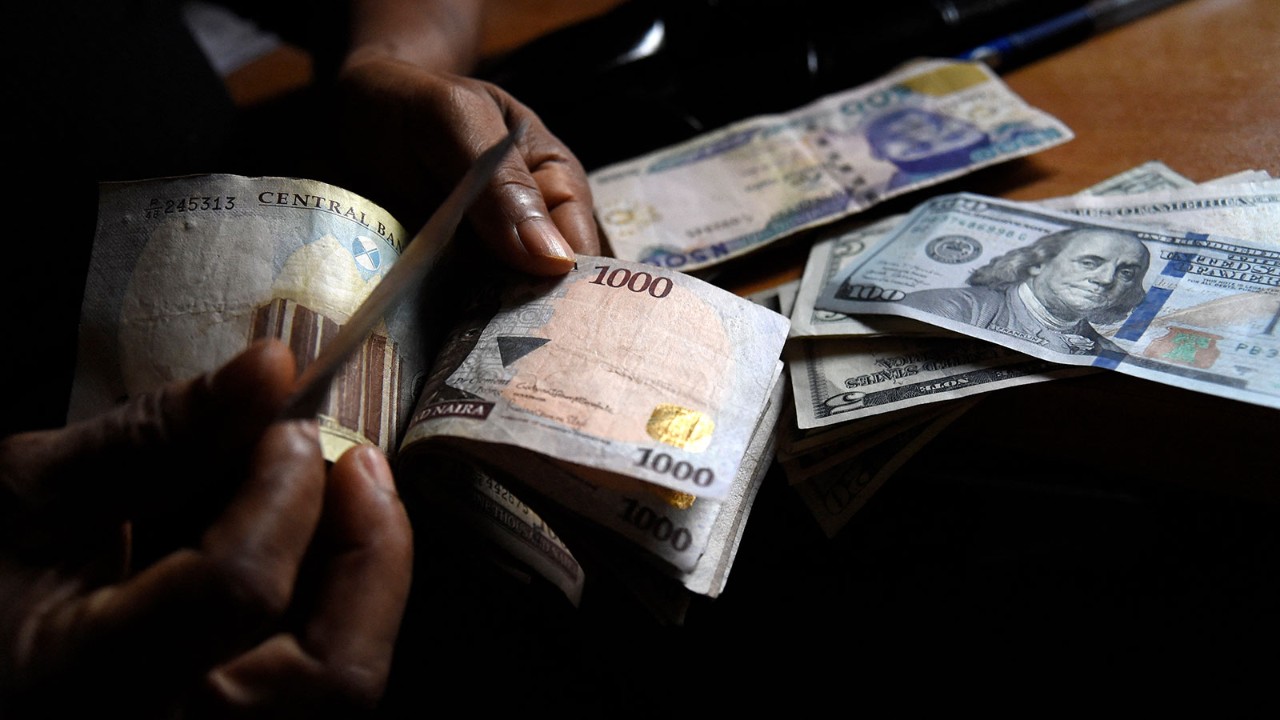
A couple of months ago, I made a business trip to Ghana and got notably fewer US dollars for my naira compared with my last foreign trip in late 2019. A month or so later, when I made a second trip to Ghana, my naira bought even fewer US dollars, while on reaching Accra, I got slightly more cedi for my dollars than on the previous trip. This got me thinking about the slide in African currencies versus the greenback and the consequent loss of wealth of Africans on a dollar basis over the years.
Like many other emerging market currencies, African currencies have always struggled to hold their value against strong currencies. It has been no mean feat for central banks across the continent to maintain the value of their currencies – they are often engaged in a delicate balancing act to keep prices and exchange rate stable while at the same time supporting economic growth.
In Nigeria, for instance, between 1 January and 23 August 2021, the naira lost 8% of its value against the dollar, as the central bank attempted to reduce inflation, boost the economy and maintain the value of the currency all at once. Something has to give. So while the economy slowly recovers from Covid-19 and inflation eases down, the currency is coming under a lot of pressure. The central bank has tried multiple tactics to get the upper hand in the battle to save the currency, its latest being the discontinuation of sales of forex to bureau-de-change operators and freezing the accounts of fintechs whose activities encourage the outflow of scarce dollars. But the pressure remains.

Our taste for foreign goods and services must be matched with enough production and exports to neutralise the effect on the foreign exchange rate
Dollarisation aggravation
The story is similar in Ghana, where the cedi has this year so far lost 3% of its value against the US dollar. The Ghanaian Ministry of Finance set up an FX development committee in January to investigate the slide of the cedi and proffer solutions. Ghana’s post-Covid economic recovery is also slow, despite sizeable interventions by government. Ordinary Ghanaians have been pricing big-ticket items such as real estate in US dollars as a hedge against currency depreciation. However, dollarisation only exacerbates the problem.
In South Africa, the rand has so far lost close to 6% of its value against the US dollar since the start of the year, perhaps helped on by the accommodating post-Covid monetary policy stance of the central bank to boost production. The CFA franc is another faller, having lost more than 5% of its value against the dollar in the year to 23 August.
A few currencies are holding up, though. They include the Kenyan shilling, which has fared better than most, shedding only about 1% so far this year, and the Egyptian pound, which has been flat against the greenback.
While Africa’s monetary authorities go through weapon after weapon to try to maintain the value of their currencies, it is important to realise that the battle cannot be won without a major restructuring of their economies. Currencies are struggling because of massive import bills and insufficient export receipts. The taste of citizens for foreign goods and services must be matched with enough production and exports to neutralise the effect on the foreign exchange rate. There must be deliberate action to change production and consumption patterns in sub-Saharan Africa. The loss of wealth will stop only when people have learned to produce what they use themselves.



